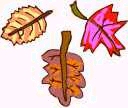down 1.
This is what happens after germination as the plant produces roots and leaves.
|
down 2.
Flowering plants that take two years to complete their life cycle. They grow and store food during the first year. In the second year, they bloom and produce seeds.
|
down 3.
This occurs when birds, insects, or the wind carries pollen from one plant to another plant.
|
down 4.
This is inside of a seed and used by the plant in its earliest growth stages. (2 words)
|
down 5.
This is what happens after a seed has met its three needs and it begins to break open. Usually this will occur in the spring.
|
down 8.
The withering of a plant and production of seeds after the plant has been pollinated. (2 words)
|
down 11.
These are what are formed inside of a flower or fruit of a plant after the plant has been pollinated.
|
down 12.
Plants, such as trees, bushes, and many flowers, that live for at least three seasons.
|
across 6.
This protects the young plant inside of a seed before the seed germinates. (2 words)
|
across 7.
One of the needs for a seed to germinate. Rain provides plants with this need.
|
across 9.
One of the needs for a seed to germinate. The environment and weather will provide the seed with this need.
|
across 10.
One of the needs for a seed to germinate. This need provides the seed with carbon dioxide.
|
across 13.
A sweet liquid in some flowers that sticks to bees and birds to facilitate cross-pollination.
|
across 14.
A name given to a plant when it is in the very early stages of growth after it has germinated.
|
across 15.
The deposit or transfer of pollen from the stamen to the stigma of flowering and cone-bearing plants.
|
across 16.
This occurs when pollen is transferred from one part of a plant to another part of the same plant.
|
across 17.
Tiny grains that are produced in the stamen part of flowering and cone-bearing plants.
|












































































































































































































































































































































































































































































































































































































































































